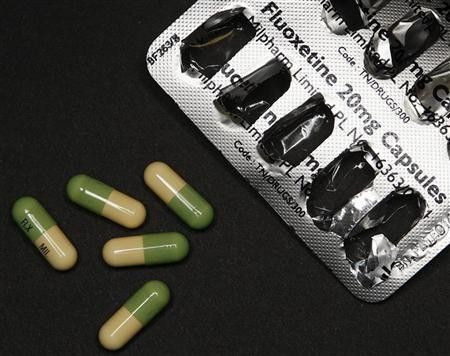Why Are Westerners So Depressed?
ANALYSIS

While Americans are instilled with the idea that they are born with the right to life, liberty and the pursuit of happiness, mental health statistics suggest that even in the greatest country on earth, happiness is indeed elusive.
In fact, almost half of all Americans will suffer from some kind of mental health disorder in their lifetime, according to a recent report from the Centers for Disease Control and Prevention, with depression and anxiety disorders topping the list.
A study released earlier this year by the World Health Organization found that France and the United States -- two of the wealthiest nations on the planet -- have the highest rates of clinical depression in the world, at 21 percent and 19 percent a piece. Meanwhile, countries such as China and Mexico, where life for the average citizen is filled with more obstacles than the typical American or Frenchman will ever experience, had the lowest rates, at 6.5 percent and 8 percent.
How exactly is this possible? Evelyn Bromet, the lead author of the WHO study, suggests that both wealth and happiness are concepts that are more relative that people typically realize.
Wherever you are, there's always people doing better than you, Bromet told CNN in July. You'd think that countries that are better off should have lower rates [of depression], but just because they have a high income doesn't mean there isn't a lot of stress in the environment.
Moreover, affluent nations tend to have higher rates of income inequality, which studies have linked to depression and other chronic diseases.
In a country like the U.S., which has built itself on the idea that anyone has the tools to climb the social and economic ladder to better their lives, people who feel like they are unable to adequately advance into a superior situation may be more prone to feelings of failure and low self-worth.
Plus, in a capitalist society that readily encourages the idea of keeping up with the Joneses,' it is easy to feel discouraged when it is not possible to acquire that next best thing.
Of course, mental health disorders in the U.S. and Europe -- where reportedly almost 40 percent of the population suffers from a mental health illness -- are considerably more profitable, which is why they may garner more attention.
The IMS Institute for Healthcare Informatics reports that Americans spent $307 billion on prescription drugs in 2010, more than any other nation. A 2010 report by the National Health and Nutrition Examination Survey found that almost half of Americans reported taking at least one prescription drug in the preceding month; antidepressants were reportedly the most commonly used drug among middle aged adults.
Since the U.S. is the only country, aside from New Zealand, where the direct to consumer advertising of prescription drugs is legal, Americans tend to be bombarded by advertisements on TV, print and radio, making it easy to recall that special brand-name pill when times are tough.
This isn't to say that mental health illness isn't present among people in developing countries. With so many health issues affecting developing nations, WHO reports that mental health is often the invisible problem in international development that is especially difficult to chart because of cultural stigmas surrounding it. Aid spending tends to focus on the big three communicable diseases -- HIV/AIDS, malaria and tuberculosis -- while other illnesses often get marginal attention and funding.
Until mental health research receives the attention it deserves in developing nations, it may be impossible to accurately track how those rates compare to westerners. But, who knows? Once those countries have their airwaves assaulted with constant advertisements for Zoloft, Prozac and Xanax, maybe their citizens will discover they are more depressed than they could have ever imagined.
© Copyright IBTimes 2024. All rights reserved.





















